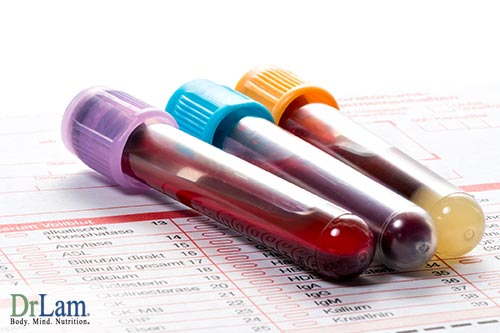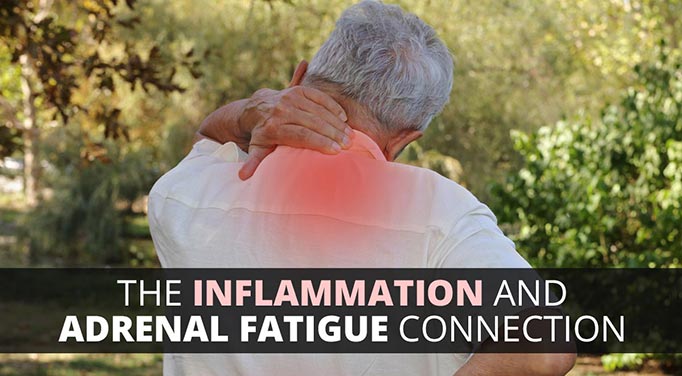 Stress induced inflammation is the result of the immune system’s cells and their byproducts attacking pathogens or damaged cells. This process increases blood flow to the affected area, creating redness and warmth. The substances the immune system’s cells release can cause a leakage of fluid into the tissues and produce swelling.
Stress induced inflammation is the result of the immune system’s cells and their byproducts attacking pathogens or damaged cells. This process increases blood flow to the affected area, creating redness and warmth. The substances the immune system’s cells release can cause a leakage of fluid into the tissues and produce swelling.
Pain and irritation may arise from this process. Other symptoms include fever, stiffness, tiredness, headaches, chills, sweating, dizziness, low appetite, and aches and pains in different areas, like joints.
Immune cells are found all over the body. Leukocytes (a type of white blood cell) are produced in the bone marrow and lymphocytes (also a type of white blood cell) are found in the lymphatic system.
However, most of the body’s immunity actually begins in the gut. The gut contains two thirds of immune tissue in what is called the GI tract’s immune system – the gut-associated lymphoid tissue (GALT). The GALT is mainly located in the small intestine and is composed of different kinds of immune cells.
The immune system’s response can be divided into these main fields of operation: natural and specific immunity or cellular and humoral immunity.
Natural immunity is the general defense system against pathogens. It works by producing phagocytic cells, cytokines, and killer cells. Phagocytic cells, like neutrophils and macrophages, destroy infectious pathogens. Cytokines stimulate the cells needed in the immune response to move to the affected areas (sites of infections or injuries) and help these cells communicate. Natural killer cells (a subset of white blood cells also called NK) kill infected or cancerous cells.
Specific immunity targets specific “jobs” or threats. It includes NKs, B cells that create antibodies to support humoral immunity, and T helper cells that create cytokines to support cellular immunity.
With regard to cellular and humoral immunity, the difference is that cellular (also called cell-mediated immunity) tags and destroys intracellular pathogens, like viruses. It doesn’t involve antibodies, but antigen-specific Th1 lymphocytes, T cytotoxic cells and NKs.
Humoral immunity on the other hand, which is immunity that involves substances found in extracellular fluids, deals with extracellular pathogens like bacteria or parasites. It does this through Th2 cytokines that stimulate B cells into producing antibodies and antimicrobial peptides that mark extracellular pathogens for disposal.
Stress and high cortisol levels affect the immune system. They promote proinflammatory pathways, especially the activity of Th2 cytokines, creating a Th1 to Th2 shift. This shift suppresses cellular immunity in favor of humoral immunity.
With chronic stress, both Th1 and Th2 classes of cytokines can dysregulate, causing the suppression of both types of immunity and slowing down the healing of wounds, producing less effective defenses against viral and bacterial infections, longer recovery from surgery, and a decrease in the ability to kill cancer cells.
Without an optimally functioning immune response, the risk of low-grade and persistent inflammation is increased, even though the inflammation itself is no longer able to contain infections or help injury recovery as well as it should.
The rise in proinflammatory cytokines involved in stress induced inflammation can also trigger the development of autoimmunity. These cytokines can stimulate the immune system to attack the body’s healthy cells, mistaking them for unhealthy cells or harmful intruders. Depending on which organ or system has been damaged by the immune response, you get a specific disease picture with its own set of symptoms.
For example, if the cytokines stimulate the immune system into attacking the respiratory airways, you can develop asthma. If the immune system attacks the pancreatic cells that produce insulin, you can develop type 1 diabetes.
Stress, when chronic in nature or when it comes at a time when an individual is in a fragile state (such as during certain hormonal changes for women like pregnancy or menopause, or when there is an illness present), can also trigger the development of autoimmunity and chronic disease.
The underlying connection is, as mentioned earlier, that chronic stress induces inflammation, and inflammation is at the root of these problems.
 Stress also has an effect on the aging process because inflammation has an effect on aging. Aging is caused by cellular senescence, which is the irreversible cell cycle arrest that comes from changes in the length and structures of telomeres.
Stress also has an effect on the aging process because inflammation has an effect on aging. Aging is caused by cellular senescence, which is the irreversible cell cycle arrest that comes from changes in the length and structures of telomeres.
Telomeres are the “caps” at the end of DNA strands; they are there to protect chromosomes. When these telomeres are shortened or changed, they cannot do their jobs as well and the DNA strands are exposed to damage.
Stress induced inflammation can accelerate cellular senescence through progressive telomeric shortening as well as oxidative stress and oncogene activation. Oncogenes are genes that, when activated, have the capacity to cause cancer.
Aging has also been linked to an increase in free radicals, hormonal decline and the decline in mitochondrial adenosine triphosphate (ATP). ATP is thought of as the energy currency of life; it is the molecule that stores the energy needed for all biological processes. Mitochondria, the organelles found in cells, synthesize this life energy by breaking down carbohydrates and fatty acids.
With free radicals, you require antioxidants to neutralize them. If your system is overloaded with free radicals, antioxidants are no longer sufficient. As the cells are exhausted and not producing enough ATP, antioxidants cannot help much. Oxidative medicine may be the better alternative as it puts energy directly into the body again. The use of natural compounds that have metabolic cardiological properties such as ribose, magnesium, CoQ10, and carnitine may be helpful to the mitochondria in optimizing ATP function.
As you can see, the interplay between stress, inflammation, and adrenal gland function are closely tied together.
Stress induced inflammation is a huge stressor on the body – strong enough to trigger adrenal fatigue or add to its many problematic symptoms like tiredness, depression, brain fog, food sensitivities and general weakness. All systems of the body is affected.
Because the NEM’s inflammation response includes the immune system, brain, and gut, its dysregulation from chronic stress will affect all of these components as well.
When these organs and systems are overworked, you not only get problems with them directly, but the adrenal glands will become overworked as well. When the adrenal glands cannot suppress this stress induced inflammation, the cycle continues.
Throughout the article we have mentioned a few tests and markers for stress, which can also help you determine whether you could develop stress induced inflammation over time. There are also some specific ways to test for inflammation directly, using symptoms as well as markers.
Chronic inflammation will have many of the same symptoms of inflammation we have discussed such as swelling, joint pain, stiffness, redness, fatigue, and heat/mood disturbance. Dull ache of unknown origin in the abdomen or migrating discomfort without a known origin can also be a sign of persistent inflammation.
Standard laboratory markers such as salivary cortisol and dhea can be helpful. To be even more accurate, markers like c-peptides, c-reactive proteins, and homocysteine levels should also be tested to confirm the diagnosis. A c-peptide test will reveal how much insulin is in the blood, because c-peptides are released into the blood at the same time as insulin. With this test, you can get an idea of whether you have insulin resistance or which type of diabetes (type 1 or 2) you might have.
 Testing the blood for c-reactive proteins will show you the level of stress induced inflammation in your body caused by things like infections or inflammatory diseases. Homocysteine (an amino acid) levels will reveal not only inflammation, but also your cardiovascular disease risk.
Testing the blood for c-reactive proteins will show you the level of stress induced inflammation in your body caused by things like infections or inflammatory diseases. Homocysteine (an amino acid) levels will reveal not only inflammation, but also your cardiovascular disease risk.
Advanced markers include IL-beta, SIgA, and alpha amylase are helpful to provide subclinical data points to help formulate a proper clinical assessment of the degree of inflammatory damage within your body in severe cases.
So, let’s say that you’ve checked your stress and inflammation levels and maybe even feel that your inflammation is induced by stress… what’s the next step? The obvious answer might be to reduce stress, and by doing so, you’ll reduce inflammation.
That is true to a certain degree. You really should reduce and manage your stress, especially if you are also suffering from adrenal fatigue. It is the root cause of your AFS as well as a likely causal factor in the inflammation you have. However, in many cases the damage caused by the presence of either, or both, of these conditions has progressed beyond recovery through stress management only.
First of all, if you have any degree of dysbiosis, you will need to make rebalancing your gut flora your first goal. Doing so will increase your immunity, improve any digestive problems you might be suffering from, help with reducing stress induced inflammation and also improve your digestion so that you get the energy and nutrients you’ve been lacking.
 You can do this with a healthy diet and exercise program, making sure you follow an anti-inflammatory diet as well as the adrenal fatigue diet if you also have AFS. This can be a little tricky if you’re not used to it, so it bodes well to consider nutritional coaching.
You can do this with a healthy diet and exercise program, making sure you follow an anti-inflammatory diet as well as the adrenal fatigue diet if you also have AFS. This can be a little tricky if you’re not used to it, so it bodes well to consider nutritional coaching.
A diet that is right for your condition will help you eliminate any foods you are sensitive to or are detrimental to your state of health, as well as add supportive and nutrient-dense foods.
You may also consider supporting your gut with probiotics, prebiotics and digestive enzymes. Also, you can support your adrenals with adrenal fatigue supplementation.
This can also present a challenge as some supplements that help with one condition may adversely affect another. Some supplements may give favorable results at first and then cause a crash afterwards. This is why it is best to do this with the help of a trained medical professional experienced in adrenal fatigue, gut health, and stress induced inflammation.
Make sure you avoid the shotgun approach with supplementation where you take many vitamins supplements at the same time thinking it will do you good. It will more than likely backfire, and in the end you won’t know which supplements actually were the right ones. A gentle, safe approach is key. Take it one step at a time.
Don’t be surprised that by healing your gut and reducing stress, your condition will improve dramatically. Even psychological issues, like depression, will improve because of the gut-brain connection as well as the lower stress and the inflammation-mood connection.
Strengthening the adrenal glands will also be a great help with your efforts to reduce stress; after all they are the body’s main defense against stress. A fit and healthy stress response that can both neutralize stress as well as “switch off” once the job is done is vital.
 Consider doing adrenal breathing exercises and adrenal yoga exercises, depending on the severity of your AFS. Support your recovery by removing as many stressors in your life as you can, without overwhelming yourself. Cut down on sugar, alcohol, caffeine, and any chemical-laden products you might be using.
Consider doing adrenal breathing exercises and adrenal yoga exercises, depending on the severity of your AFS. Support your recovery by removing as many stressors in your life as you can, without overwhelming yourself. Cut down on sugar, alcohol, caffeine, and any chemical-laden products you might be using.
Getting enough rest and good quality sleep is essential as well. Make sure your room is dark and cool, that your blood sugar is stable before going to sleep (you can eat a small snack before bed), that you don’t eat a big meal at least two hours before bed, that you don’t use electronic devices at least two hours before bed, and that you switch off any devices that might disturb you during the night.
Needing a lot of sleep during your recovery from AFS and stress induced inflammation is natural. Don’t feel bad that you are not capable of being as productive as you used to be. Your body is working hard to get back to normal, so give it all the rest it needs. If you follow these steps, get the right kind of medical support and lead a healthier lifestyle, soon enough you will be able to get your energy back – and do what you want to do!
© Copyright 2018 Michael Lam, M.D. All Rights Reserved.

